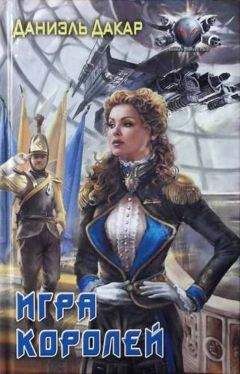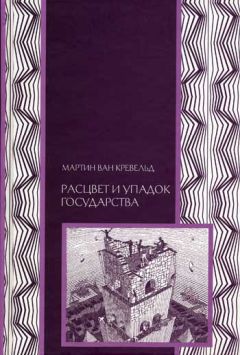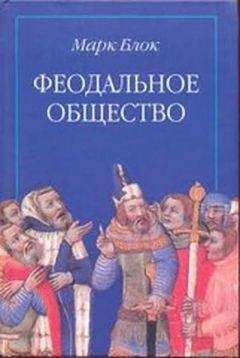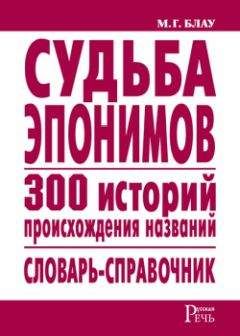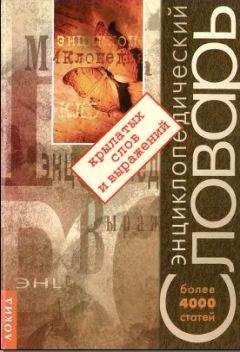Мартин ван Кревельд - Расцвет и упадок государства
623
Сражения в сомкнутых боевых порядках (франц.). ― Прим. пер.
624
Литература о преобразовании прусской армии обширна. См.: Гёрлиц В. Германский генеральный штаб. История и структура. 1667 ― 1945. М.: Центрполиграф,2005. С. 19-54; D. Showalter, "Retaining Bellona: Prussia and the Institutionalization of the Napoleonic Legacy," Military Affairs, April 1980, p. 57-62.
625
Районы вербовки (нем.). ― Прим. пер.
626
Лейтенант запаса (нем.). ― Прим. пер.
627
Военная академия (нем.). ― Прим. пер.
628
Гёрлиц. Указ. соч. С. 63-64, 98-100 и др.
629
О битве при Лейпциге и потере Наполеоном управления см.: Vizthum von Echstadt, Die Hauptquartiere im Herbstfeldzug 1813 aufdem deutschen Kriegsschauplatze (Berlin: Mittler, 1910).
630
Сравните данные по битвам при Лейпциге (460 000 человек участников, 90 000 человек потерь), Сольферино (240 000 человек участников, 40 000 человек потерь) и Геттисберге (160 000 человек участников, 50 000 человек потерь). Данные из: Harbottle' s Dictionary of Battles (New York: van Nostrand, 1981, 3rd edn.).
631
Об этих изменениях см.: G. Best, War and Society in Revolutionary Europe 1789-1870 (London: Fontana, 1982), p. 191-309; J. Gooch, Armies in Europe (London: Routledge, 1980), p. 50―80.
632
По этому вопросу см.: J.M. Winter War and Economic Progress (London: Cambridge University Press, 1976).
633
Взаимоотношения между возникновением государства, регулярной армии и рывком в развитии военных технологий никогда не исследовались. Некоторые комментарии см. в: М. van Creveld, "The Rise and Fall of Military Technology," Science in Context, 7, 2, 1994, p. 329ff.
634
J.H. Plumb, The Origins of Political Stability: England 1675-1725 (Boston: Houghton Mifflin, 1967), p. 119.
635
L. Mumford, The Myth of the Machine (New York: Harcourt, 1970) p. 150-151.
636
Краткий обзор военно-технического прогресса XIX см.: В. Brodieand F. Brodie, From Cross Bow to HBomb (Bloomington: Indiana University Press, 1959), p. 124-171.
637
A.S. Field, "French Optical Telegraphy, 1793-1855: Hardware, Software, Administration," Technology and Culture, 35, 2, 1994, p. 315― 347.
638
A. Rumeude Armas, "La hmea telegrafica Madrid-Cadiz (1800), primera de Espacaу segundade Europe," Hispania, 42, 152, 1982, p. 522― 563.
639
Подробное описание см. в работе: D. Showalter, Railroads and Rifles: The Influence of Technological Developments on German Military Thought and Practice, 1815―1865 (Hamden, CT: Archon Books, 1975).
640
По должности (лат.). ― Прим. научн. ред.
641
О численности армий 1914 г. см.: Н. Kuhl, Der deutsche Generalstab in Vorbereitung und Durchfuehrung der Weltkrieg (Berlin: Mittler, 1920), p. 16, 63, 87, 103.
642
Довоенные цифры взяты из книги: Oberste Heeresleitung, Taschenbuch fur Offizier der Verkerhrstruppen (Berlin: Oberste Heeresleitung, 1913), p. 84; данные за 1916 г. ― из работы: A. Henniker, Transportation on the Western Front, 1914-1918 (London: HMSO, 1937), p. 103.
643
См. ниже, глава 6, раздел «Отмирание большой войны», с. 413― 434.
644
Самая последняя работа, посвященная интеллектуальной биографии Лидделл-Гарта: A. Gat, "The Hidden Sources of Liddel Hart's Ideas," WarinHistory, 3, 3, July 1996, p. 293-308.
645
Молниеносная война (нем.). ― Прим. пер.
646
См.: В. Bond, LiddellHart: A Study of His Military Thought (London: Cassell, 1976), esp. p. 215ff.
647
См.: L. Kennet, The First Air War 1914-1918 (New York: Free Press, 1991).
648
По преимуществу, типичный (франц.). ― Прим. пер.
649
Дуэ Дж. Господство в воздухе. М.:Издательство ACT; СПб.: Terra Fantastica, 2003, в частности гл. 1. Хороший обзор межвоенных дискуссий о роли военно-воздушных сил представлен в работе: Е. Warner, "Douhet, Mitchell, Seversky. Theories of Air Warfare" in E.M. Earle, eel., Makers of Modern Strategy (Princeton: Princeton University Press, 1943), p. 485-503.
650
Е. Ludendorf, The Nation at War (London: Hutchinson, 1938), p. 11 ― 85.
651
См.: М. van Creveld, Airpower and Maneuver Warfare (Maxwell AFB, AL: Air University Press, 1994), ch. 2.
652
K.L. Privatsky, "Mobility Versus Sustainability," Military Review, 67, 1, 1987, p. 48-61.
653
Самый последний вклад в дискуссию по данному вопросу представлен в статье: R. Overy "World War II: The Bombing of Germany", in А. Stephens, ed. The Warin the Air 1941 ― 1945 (Fairbairn: Air Power Studies Centre, 1995), p. 113-140.
654
См.: W.H. McNeill, The Pursuit of Power: Technology, Armed Force and Society Since AD 1000 (London: Weidenfeld and Nicolson, 1982), p. 170-174.
655
Подробности см. в работе: E. Angelucci, The Rand McNally Encyclopaedia of Military Aircraft, 1914 to the Present" (New York: Gallery Books, 1990), p. 185-186.
656
Лучший обзор Манхэттенского проекта: F. Rhodes, The Making of the Atomic Bomb (New York: Simon and Schuster, 1988).
657
См. рассказ из первых рук в книге: Now It Can Be Told (New York: Harper and Row, 1962). 150 Фраза взята из книги: Н. de Balzac, Bureaucracy (Boston: Roberts, 1898; перевод "Les employees", 1863), p. 84.
658
Missed fntext
659
Speer, Errinerungen, p. 79.
660
О Харрингтоне см.: B.I. Cohen "Harrington and Harvey: A Theory of the State Based on the New Physiology," Journal of the History of Ideas, 55, 2, 1994, p. 187-210.
661
См.: R. Briggs, "TheAcademie royaledes sciences and the Pursuitof Utility" Past and Present, 131, 1991, p. 38―88; иобгций обзор: Р. Carroll, "Science Power, Bodies: The Mobilization of Nature as State Formation," Journal of Historical Sociology, 9, 2, 1996, p. 139-167.
662
A.J. Rieber, "Politics and Technology in Eighteenth-Century Russia," Science in Context, 8, 2, 1995, p. 341-368.
663
M. Merger, "Les chemins de fer italiens: leur construction et leurs effets," Histoire, EconomieetSociete, 11, 1, 1992, p. 109-120; B. Mazlish, ed., The Railroad and the Space Program: An Exploration in Historical Analogy (Cambridge, MA: MIT Press, 1965), p. 29-30.
664
См. ниже, гл. 5, «Восточная Европа», с. 326―346.
665
Об истории железных дорог в России см.: V.Y. Larechev, "The Trend 'Towards State Monopoly in Pre-Revolutionary Russia's Railways," Journal of Transport History, 6, 2, 1985, p. 37―47; высказывание Ленина приведено по: J. N. Westwood, A History of Russian Railways (London: Allen and Unwin, 1964), p. 7.
666
P. Grisset, "L'etat et les telecommunications internationales au debut du XXe siHcle en France: un monopole sterile," Histoire, Economie et Sorietd", 6, 2, 1987, p. 187-207.
667
Данные см. в работе: G. A. Cranfield, The Press and Society: From CaxIon to Northcliffe (London: Longman, 1978), p. 139.
668
Reynolds "Autocratic Journalism: The Case of the St. Petersburg Telegraphic Agency" ― "SlavicReview",49, 1, 1990, p. 48―57.
669
M. Sewell, "'All the English Race is in Mourning': The Assassination of I 'resident Garfield and Anglo-American Relations," Historical Journal, 3-1,3, 1991, p. 665-686.
670
Как таковое (лат.). ― Прим. пер.
671
Лучший анализ российской патриархальности: R. Pipes, Russia Underthe Old Regime (Harmondsworth, UK: Penguin Books, 1974), esp. p. 52―54, 69―70, 77―79. [Пайпс Р. Россия при старом режиме. М.: Независимая газета, 1993. Особ. с. 70―79, а также гл. 2―3.]
672
Основные положения «Соборного уложения» см. в кн.: R.E.F. Smith, The Enserfment of the Russian Peasantry (Cambridge: Cambridge University Press, 1968), p. 141-152.
673
Эти и другие данные касательно российского населения см. в: J.P. Le-Donne, Absolutism and Ruling Class: The Formation of the Russian Political Order 1700-1825 (New York: Oxford University Press, 1991), <h. 2.
674
Краткий обзор этих реформ см. в: Е. V. Anisimov, The Reforms of Peter the Great: Progress Through Coercion in Russia (Armonk, NY: Sharpe, 1993), p. 186-193.
675
О создании российской армии см.: R. Hellie, Enserfment and Military Change in Muscovy (Chicago: University of Chicago Press, 1971), p. 151ff.
676
См.: А. V. Muller, ed., The Spiritual Regulation of Peter the Great (Seattle: University of Washington Press, 1972). Реформы в целом обсуждаются в работе: J. Cracraft, The Church Reform of Peter the Great (London: Macmillan, 1971).
677
Cm. : G. Marker, Publishing, Printing and the Origin of Intellectual Life inRussia 1700―1800 (Princeton: Princeton University Press, 1985), p. 77.
678
Подробнее о сословии купцов или посадских см.: J. Michael Hittle, The Service City: Stateand Townsmen in Russia, 1600―1800 (Cambridge, MA: Harvard University Press, 1979), p. 97―167.
679
В силу самого факта (лат.). ― Прим. пер.
680
См.: Пайпс. Россия при старом режиме. С. 369―370.
681
Корпоративный дух (франц.). ― Прим. пер.
682
Великая армия (франц.). ― Прим. пер.
683
Первый среди равных (лат.). ― Прим. пер.
684
О попытках Екатерины продвинуться в этом направлении см.: M.Raeff, The Well-Ordered Police State: Social and Institutional Change Through Law in the Germanies and Russia, 1600 ―1800 (New Haven, CT: Yale University Press, 1983), p. 235ff.
685
См.: А.В. Ulam, Russia's Failed Revolution: From the Decembrists to IheDissidents (London: Weidenfeld and Nicolson, 1981), p. 3―65.
686
В 1830-е годы в России на 1000 жителей приходилось 1,3 чиновника, it Великобритании ― 4,1, во Франции ― 4,8. S. Frederick Starr, Decentralization and Self-Government in Russia, 1830 ― 1870 (Princeton: Princeton University Press, 1972), p. 48.
